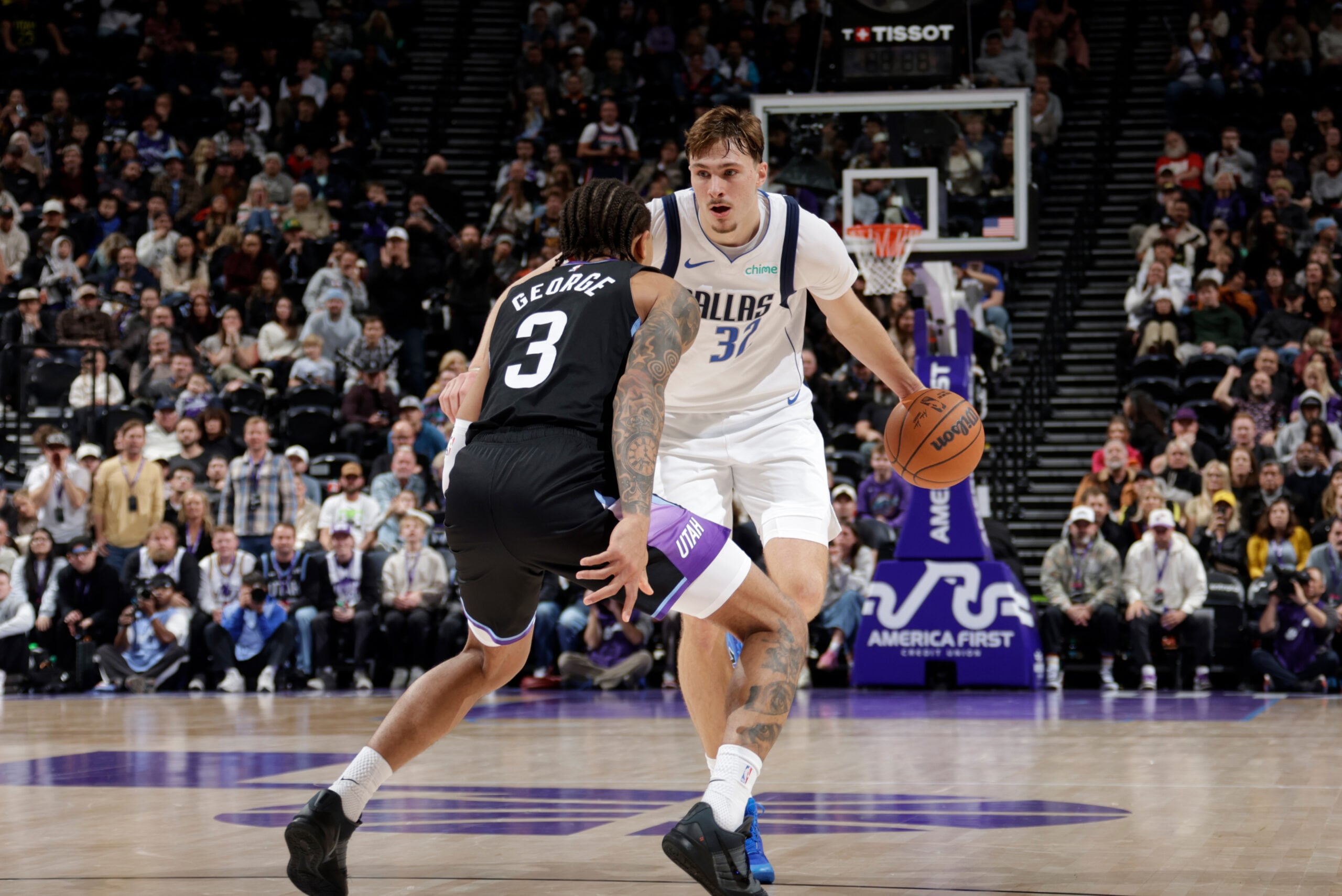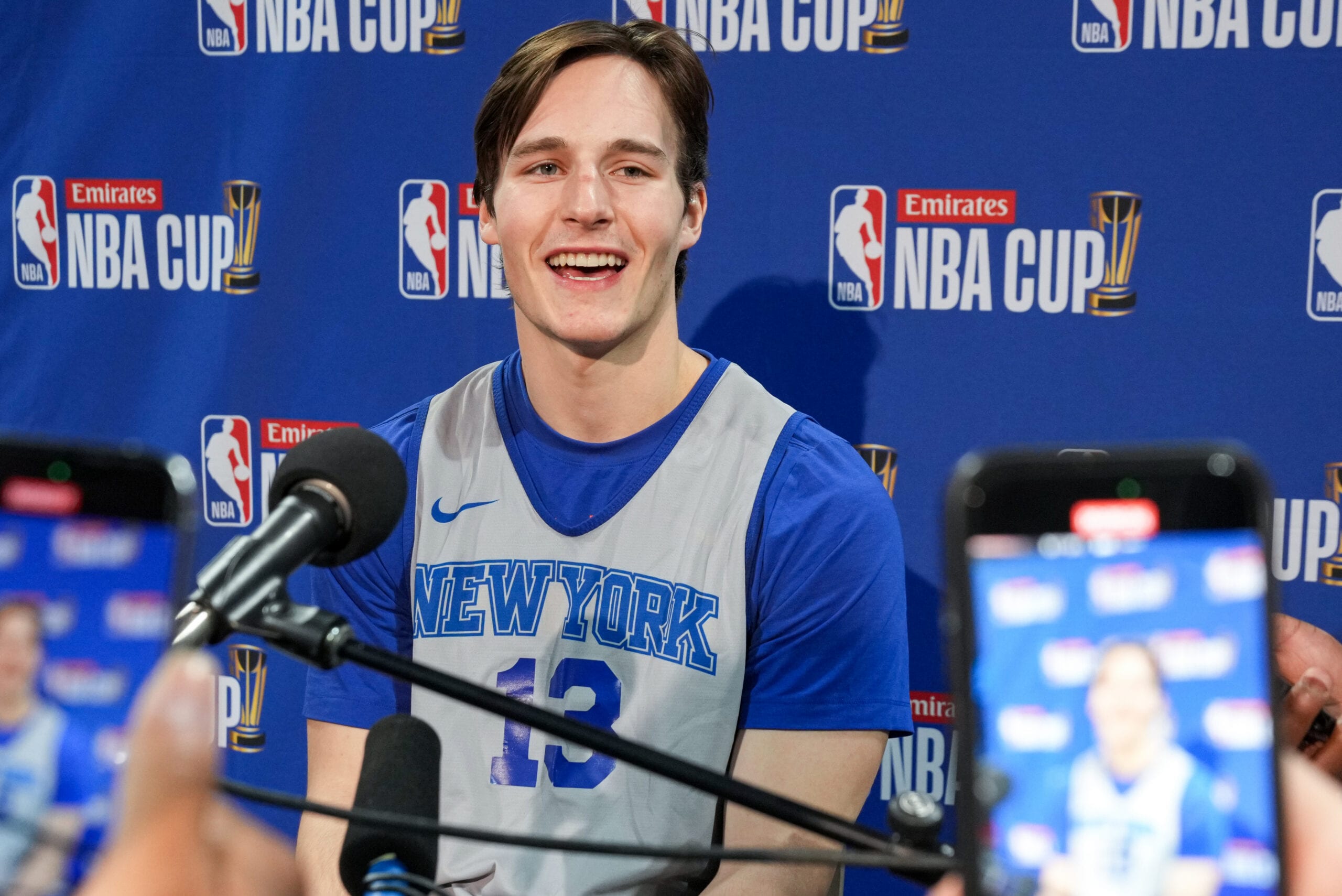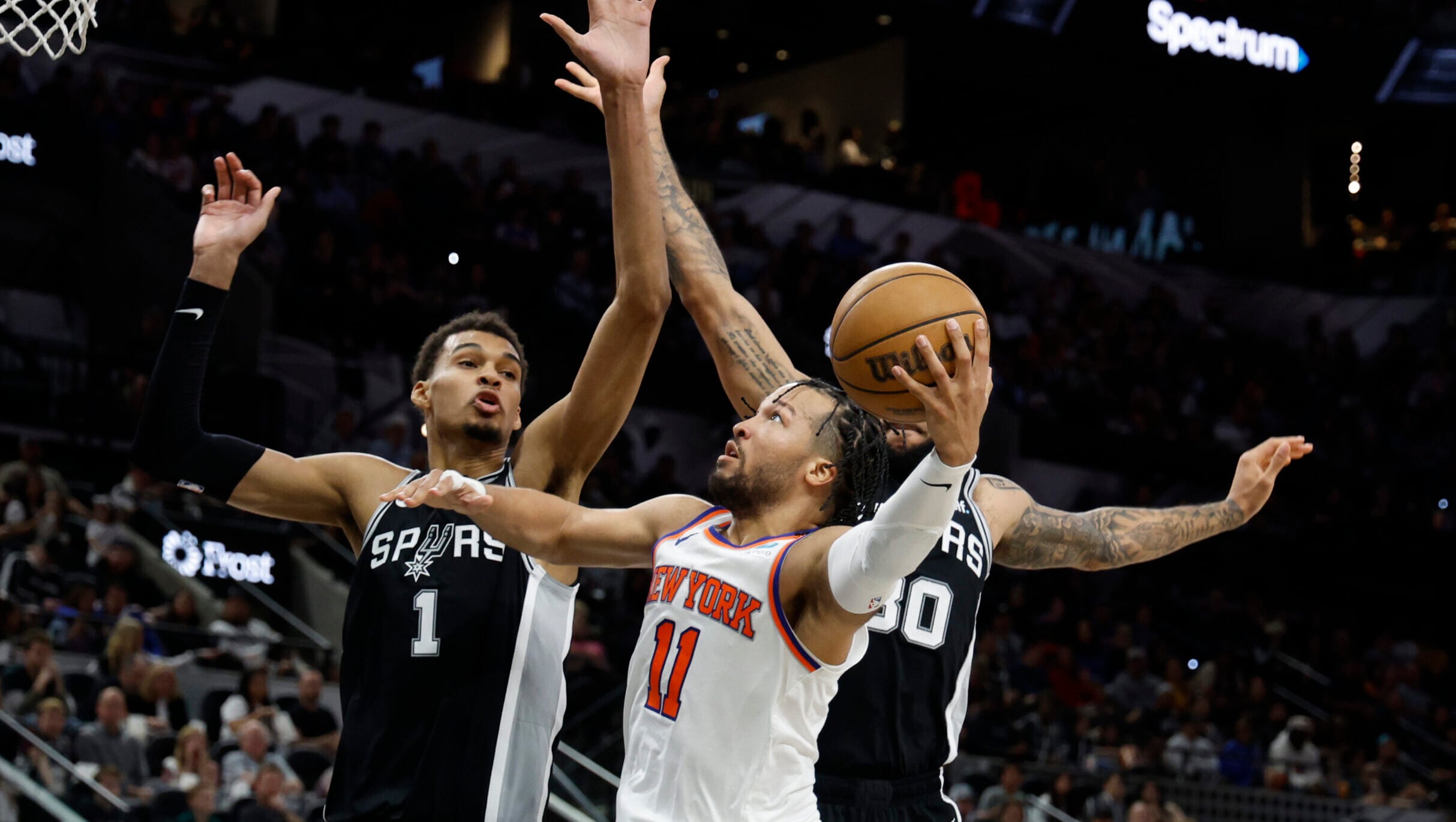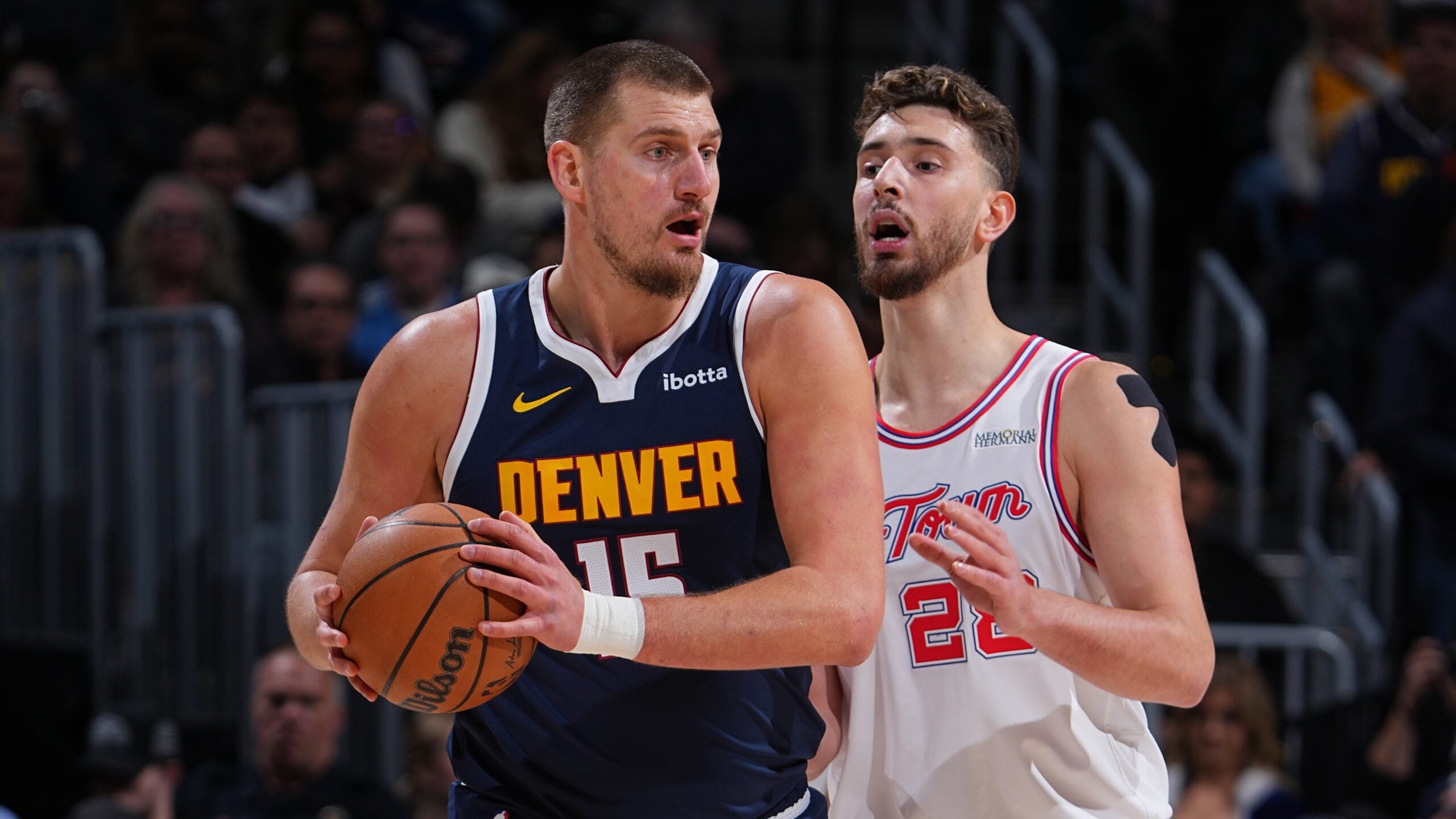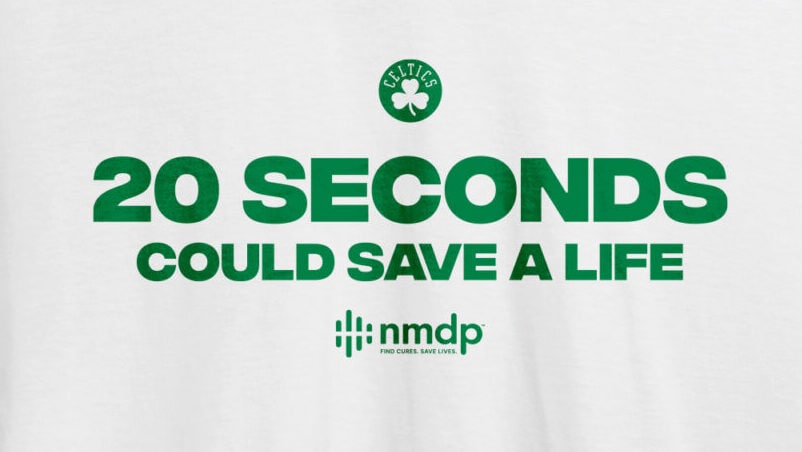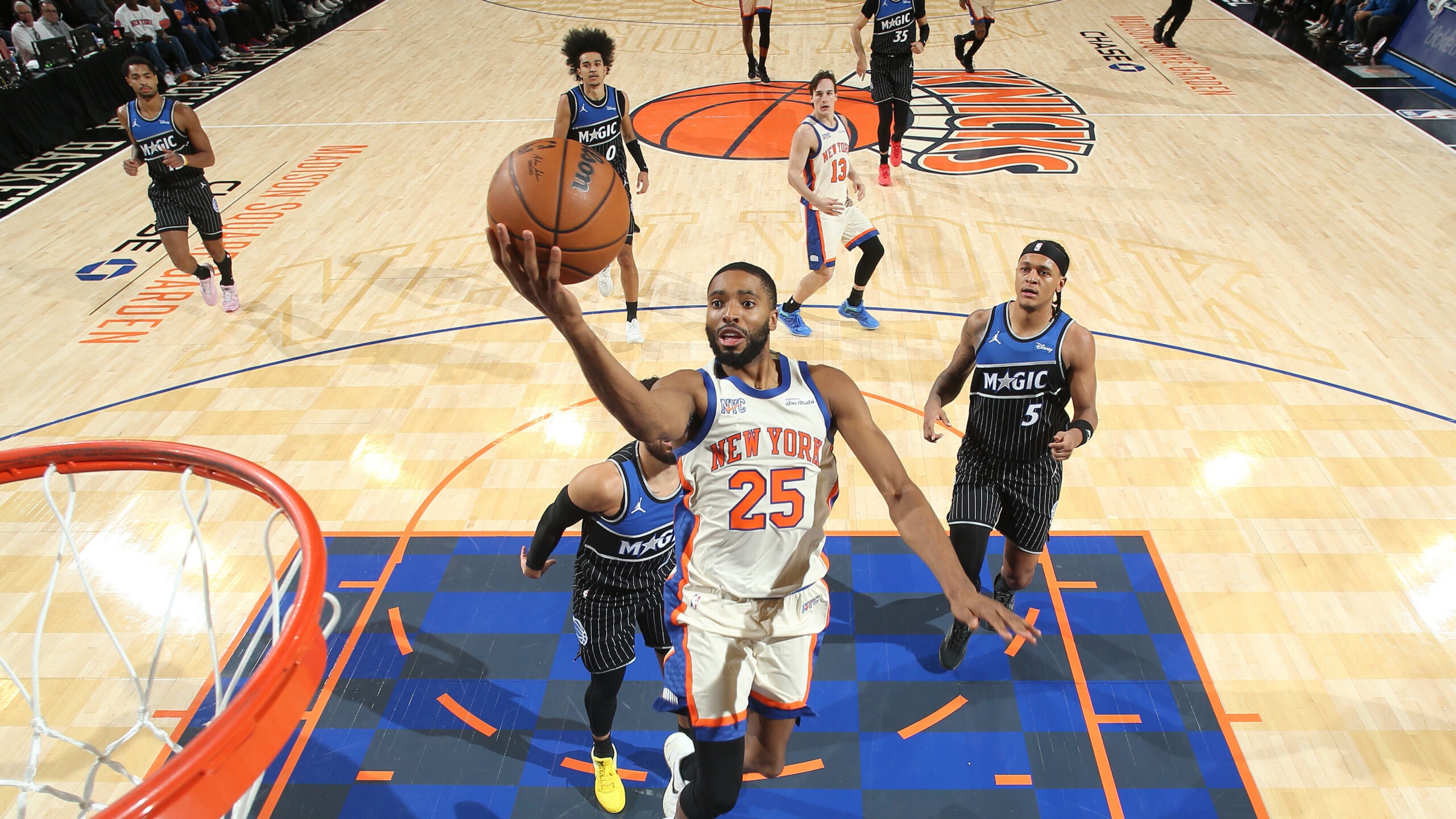If you know someone who has voluntarily driven across the country at age 87 or older, that person has something in common with one of the greatest basketball players of all time.
Bill Russell, the defensive legend and iconic 11-time NBA champion with the Boston Celtics, had visited the New England city to auction off year’s worth of memorabilia collected during his illustrious career. He also took in a Lakers-Celtics game at TD Garden before embarking on his memorable trip back home by car.
Russell documented the sojourn on social media, commenting on scenery and asking for local recommendations for food and the like. Many of his stops coincided with teams, players and moments both iconic and random from his NBA career. Here’s a look at how his road trip doubled as a stroll down memory lane for the league’s most prolific winner:
Bill Russell and the Boston Celtics win the franchise's first NBA title.
BOSTON
Heading back home to the west coast. Coast to coast #roadtrip @NBA @celtics pic.twitter.com/czSggOfJ10
— TheBillRussell (@RealBillRussell) December 12, 2021
The #BillRussellRoadTrip set out from Boston, the only city to serve as Russell’s NBA home during his playing days.
It’s not often a rookie leads his team to an NBA championship, but that’s exactly what Russell did in his debut season. The former No. 2 overall pick led the league in rebounding as a first-year player, and he punctuated that dominant skill set by amassing 32 boards in the title-clinching Game 7 over the St. Louis Hawks in 1957.
Russell went on to win 11 championships in 13 seasons, and only failed to make the Finals once in that span. Despite retiring over 50 years ago, Russell still ranks among the Celtics’ franchise leaders in games played (5th), minutes (2nd), field goals (8th), free throws (7th), rebounds (1st), assists (6th) and points (8th).

Bill Russell dunks against Willis Reed in 1969 at the Boston Garden.
NEW YORK
See Ya #Massachusetts, Hello #NewYork #BillRussellRoadtrip pic.twitter.com/7PMvQkarFc
— TheBillRussell (@RealBillRussell) December 12, 2021
After an encouraging first decade as one of the league’s original teams, the Knicks fell from contention right around when Russell arrived. But near the end of Russell’s career, New York found itself rejuvenated behind a star-studded core that included Willis Reed and Walt Frazier.
The new-look Knicks thought their moment might have come by the 1969 Eastern Division finals against an aging Celtics team and Russell closing out his last season. Instead, Boston’s big man imparted a veteran lesson by averaging 16.3 points, 20.8 rebounds and 5.5 assists in the series. Only the following year, after Russell had retired, did New York finally break through and win its first championship.

Wilt Chamberlain goes to the basket against Bill Russell circa 1962 at the Boston Garden.
PENNSYLVANIA
Another gorgeous day to drive across country. Made it to Pa last night and just got into O-hi-O #BillRussellRoadTrip @NBA @celtics pic.twitter.com/awHWhiSIxW
— TheBillRussell (@RealBillRussell) December 13, 2021
Coming off a championship season headlined by Hall of Famers Paul Arizin and Neil Johnston, the Philadelphia Warriors probably felt their window had only begun to swing open.
Then Russell happened.
The Warriors never made the Finals again in Philadelphia, with young Russell and the Celtics slamming the door on them again and again until they moved to San Francisco in 1962.
Philadelphia was also the first stage for perhaps the best individual duel of all time, thanks to the arrival of the man Bill Russell deemed the greatest competitor of his career: Wilt Chamberlain.
On Nov. 7, 1959, Bill Russell and Wilt Chamberlain competed against one another for the first time.
The pinnacle of their early battles occurred in the 1962 Eastern Division Finals. That was the same season that Chamberlain averaged 50 points and 25 rebounds per game… and watched Russell win his third MVP award.
That year’s playoff matchup reinforced the award outcome. Wilt averaged a whopping 33.6 points and 26.9 rebounds in the series, but it was Russell (22.0 ppg, 25.9 rpg, 4.3 apg) and company who came out on top in a dramatic seven-game series.
That victory was one of the best in Russell’s iron-clad big-game reputation. The Hall of Famer would end his career an undefeated 10-0 in playoff Game 7s.

Oscar Robertson handles the ball against the Boston Celtics circa 1968 at the Boston Garden.
OHIO
Hey Cleveland I’m about an hour away what’s a great breakfast spot? I’m hungry! @cavs
— TheBillRussell (@RealBillRussell) December 13, 2021
The Cleveland Cavaliers were still a year away from existing when Russell retired in 1969, but Ohio was home to another of his era’s most overpowering individual talents. Long before they were the Sacramento or even Kansas City Kings, the Cincinnati Royals were headlined by triple-double machine and fellow player rights icon Oscar Robertson.
Believe it or not, Cincinnati was a member of the NBA’s Western Division before switching to the East in 1962. The move didn’t help, as Russell’s Celtics eliminated them from the playoffs in three of the following four seasons (with Wilt’s 76ers ousting them as well).
Barrier Breakers: Robertson and Russell
Oscar Robertson and Bill Russell talk about the challenges they faced as they entered professional basketball.
Russell’s final playoff meeting with Robertson is an underrated one. The best-of-five series went the distance, with Robertson’s 37 points, seven rebounds and nine assists being met by a massive Russell triple-double: 16 points, 31 rebounds and 11 assists.
Robertson was the third member of the historic 1961-62 season, averaging a triple-double the same year of Wilt’s 50-25 clip and Russell’s third MVP award. Russell (2017) and Robertson (2018) were also the first recipients of the NBA Lifetime Achievement Award.
Bill Russell discusses the dynamic of racism in his personal and professional life.
INDIANA
Hey #Indiana just got here what’s up? Getting lucky with the great weather☀️#BillRussellRoadTrip @Pacers @NBA pic.twitter.com/AdFLNWXsOn
— TheBillRussell (@RealBillRussell) December 13, 2021
Many of Russell’s most significant achievements occurred off the court, particularly those concerning civil rights. Unwilling to accept racism and segregation as simply a fact of the times, Russell was unafraid to stand for the dignities he felt every man of every color deserved.
One such stand occurred in Marion, Ind., where a day of honor turned into an evening of offense. The defending champion Celtics were visiting Marion on an exhibition tour, and were honored by the mayor with a banquet and keys to the city inscribed with the word “Welcome.”
Yet after their game at a local high school, Russell and three teammates were made to feel anything but welcome when they were denied service at a local restaurant. The establishment’s hostess told them all the tables and barstools were reserved and refused to serve them.
Determined to set things aright, Russell took his complaint to the police station — where it went un-investigated. It was after midnight when Russell and his teammates woke the mayor to express their disapproval of the occurrence and return the key to the city before filing a formal grievance the next morning.
Russell has since received numerous awards for his continuous efforts to secure civil equality, including the Presidential Medal of Freedom.
Chris Webber sits down with Bill Russell and they talk about some hot topics around the NBA.
CHICAGO
Ok Chicago you are up next. I hope my Dr does not follow me on social because I am looking for Chicago’s best Hotdog 🌭 I’m 1hr away. Let me know #BillRussellRoadTrip @NBA @chicagobulls @CBSSportsNBA @NBAonTNT @ESPNNBA @NBAonABC
— TheBillRussell (@RealBillRussell) December 13, 2021
The Bulls were a fledgling team by the end of Russell’s career, a new franchise in search of its first taste of success. Russell didn’t let them taste it often, going 17-5 in his career against Chicago.
His record was an even better 17-3 against the Chicago Packers and Chicago Zephyrs. No, those names aren’t made up. The team now known as the Washington Wizards was actually born in Chicago as the Packers, before the name’s NFL-related unpopularity in the Chicago area prompted a change to the “Zephyrs” after just one season. That turned into a one-year experiment as well, as the Zephyrs moved to Baltimore and renamed themselves the Bullets the season after that.
Russell’s dynastic Celtics, meanwhile, stood the test of time until the Bulls became the first team since Boston to win three consecutive championships (Russell’s Celtics topped out at eight in a row).
Your getting closer @nba @nfl @BleacherReport @SLAMonline @espn https://t.co/cVAwvSt0y7 pic.twitter.com/Oll2mvW1vg
— TheBillRussell (@RealBillRussell) February 12, 2021
When asked to choose the best player between himself, Wilt Chamberlain and Chicago’s Michael Jordan in an exclusive TNT interview, Russell laid out why he would choose himself with simple and undeniable logic.
“You’d pick Bill Russell,” he admitted. “For the reason: he will never distort your defense or your offense. I played games in my peak where I had six shots and I could close down the whole frontcourt.
“The way I played, my team wins.”
WISCONSIN
Getting started this morning I saw this picturesque pond, when I zoomed in & noticed it was not a “pond” it was a block of ice with a bunch of crazy Canadian geese standing on it 😆 BURR!!🥶Wisconsin Chasing the Sun☀️ @NBA @celtics #BillRussellRoadTrip pic.twitter.com/0Fk5QbN6ZL
— TheBillRussell (@RealBillRussell) December 14, 2021
The Bucks’ inaugural season was also Russell’s last in the league (1968-69). A 34-year-old Russell grabbed 18 or more rebounds in all six games against the new NBA franchise, going 5-1 against Milwaukee.
The 1969 Draft was held during the divisional round of the playoffs. The night after Russell’s Celtics seized a 1-0 series lead over the Knicks, the Bucks drafted a guy by the name of Lew Alcindor after winning a coin flip with Phoenix for the No. 1 pick.
Sorry I had to take a covid pass again this year, @Giannis_An34 you did the #BillRussellMVP award justice. 50 pst 14 boards! What a great way to close it out. I only wish I could hand it to you. #Congrats @NBA #BucksInSix #NBAFinals2021 @Bucks @BleacherReport @espn #FearTheDeer pic.twitter.com/m7q6TpHQrg
— TheBillRussell (@RealBillRussell) July 21, 2021
More than fifty years later, Russell watched Milwaukee’s present-day superstar Giannis Antetokounmpo win the franchise’s first title since 1971. Russell expressed regret for being unable to present Antetokounmpo with the Finals MVP award due to the pandemic, but put his own stamp of approval on the Greek Freak’s performance via social media.
MINNESOTA
Sorry to report we had a very minor issue to address with our trailer, so no food in Minnesota 😩. Happy to report we are 🎶on the road again. Heading west #BillRussellRoadtrip @NBA @NBAonTNT @celtics pic.twitter.com/BFUiHKf81k
— TheBillRussell (@RealBillRussell) December 14, 2021
The Timberwolves were still two decades away by the time Russell retired. He did play road games in Minnesota early in his career however — against the then-Minneapolis Lakers.
Russell’s Celtics swept Rookie of the Year Elgin Baylor and the Lakers in the 1959 Finals, his second title in just three seasons. Russell averaged 46.5 minutes and 29.5 rebounds in the series. One year later, the Lakers drafted Jerry West and moved to Los Angeles, settling in as Russell and Boston’s long-term rival in the West.
Baylor and Russell would meet in the Finals six more times over the following 10 seasons. The two revolutionary superstars developed a mutual respect and friendship over the years. When Baylor died in 2021, Russell again took to social media to express his heartfelt emotions.
Losses like the one we suffered today I can’t put into words. Our love to Elaine & the family #RIP Rabbit aka Elgin Baylor. I love you my friend #ElginBaylor pic.twitter.com/qT34sXE05T
— TheBillRussell (@RealBillRussell) March 22, 2021

Bill Russell passes the ball against Walt Bellamy and Phil Jackson of the New York Knicks circa 1968.
THE DAKOTAS AND MONTANA
What a difference a day makes in the Dakota’s 🥶. It’s gonna be a long one today! #MondayMorning #BillRussellRoadTrip @NBA @celtics #BURRR pic.twitter.com/M1SkJifGr4
— TheBillRussell (@RealBillRussell) December 15, 2021
While passing through the northern states, it’s worth wondering whether Russell is ever tempted to pay a visit to North Dakota native and long-time Montana resident Phil Jackson. Their respective paths crossed as players before intersecting in historical debates much later.
Jackson played for the Knicks team that lost to Russell’s Celtics in the 1969 playoffs. Two decades later, it was Jackson’s turn to take a head coaching job. His run with Michael Jordan and the Chicago Bulls led to arguments about which team and superstar was better.
In an interview with Time in 2013, Jackson said Russell would be the first pick for his own hypothetical dream team.
“In my estimation, the guy that has to be there would be Bill Russell. He has won 11 championships as a player,” Jackson said in an interview with Time. “That’s really the idea of what excellence is, when you win championships.”

IDAHO
Made it to Coeur d’Alene slow drive over the pass to get there. Beautiful drive. Happy to report no traffic reports #BillRussellRoadtrip #FridayVibes #FridayFeeling @NBA @BostonGlobe pic.twitter.com/HR4pNaxNoW
— TheBillRussell (@RealBillRussell) December 17, 2021
A slight detour south would have taken Russell’s road trip through the University of Idaho, where Gus Johnson starred as a collegiate athlete before moving on to the NBA.
Johnson was a 6-foot-6 forward with a physical, airborne skillset ahead of his time in the 1960s and early 1970s. With plenty of muscle and a willingness to use it, Johnson teamed up with Wes Unseld to build the Bullets into a competitive franchise despite the presence of Russell’s Celtics and other juggernaut teams.
Johnson made five All-Star teams and posthumously joined Russell and other legends in the Hall of Fame in 2010.
Johnson’s last two games against the Celtics before Russell retired serve as a remarkable example of the Boston big man’s impact on winning. On Feb. 5, 1969, Johnson and Baltimore came away with a 12-point win due in part to Russell’s absence. Ten days earlier, when Russell did play, the Celtics won 124-86.

WASHINGTON
Favorite photo of our Boston to Seattle #BillRussellRoadtrip caught this just as we got into Washington state Amazing PNW. #FridayFeeling #FridayVibes Almost home! @NBA @celtics @BostonGlobe pic.twitter.com/Xi7rPLX8ga
— TheBillRussell (@RealBillRussell) December 18, 2021
Russell’s home since the early 1970s, Seattle served as the legend’s next step when his playing days were done. Four years later, he was hired as the head coach of the Seattle SuperSonics. It was Russell at the helm of Seattle’s first-ever postseason appearances, including a first-round series win over Detroit in 1975.
The all-time great continues to call Seattle home, though the inner circles of basketball and civil rights welcome him wherever he goes.




